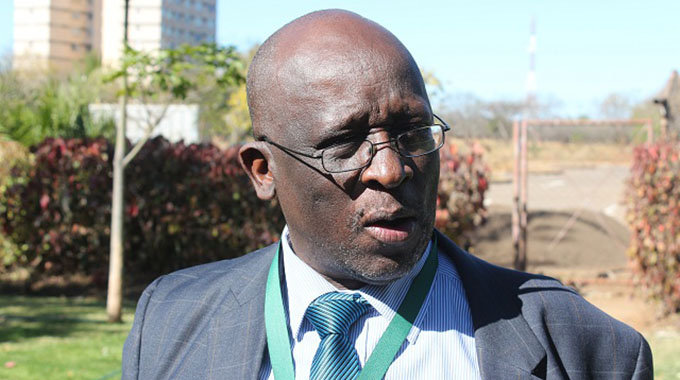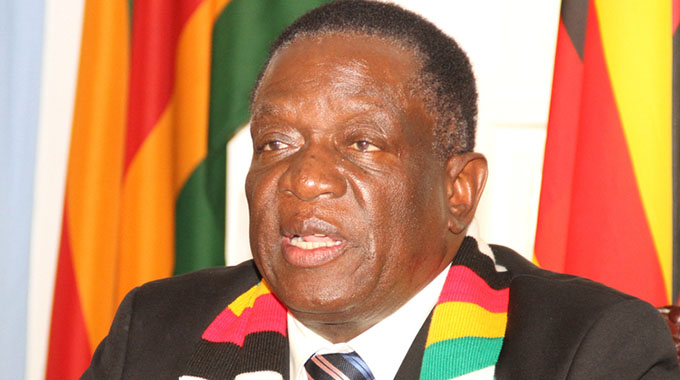Parastatal reforms pick pace

Africa Moyo Deputy News Editor
GOVERNMENT has recorded considerable progress in reforming State-Owned Enterprises (SOEs) in recent months, with the de-merger of the Grain Marketing Board (GMB) now complete, while Cabinet approvals have been obtained for the implementation of modalities of rebundling ZESA Holdings and other entities.
In an exclusive interview with The Herald , Secretary for State Enterprises Reform and Corporate Governance Unit in the Office of the President and Cabinet Mr Willard Manungo last Friday said the reforms are being done on a “case-by-case basis and are currently at various stages across the designated entities”.
The reform framework as espoused in the Transitional Stabilisation Programme (TSP) seeks, among other reasons, to mobilise private sector capital, technology and expertise to enhance efficiency and the effectiveness of public entities in the delivery of goods and services.
Under the reforms, Mr Manungo said 11 public enterprises, and an additional six Industrial Development Corporation (IDC) and Zimbabwe Mining Development Corporation (ZMDC) subsidiaries, would be privatised.
IDC’s two subsidiaries, National Glass Industries and Motira, have been liquidated.
Eleven entities would be merged, while seven SOEs would be departmentalised into line ministries.
Said Mr Manungo: “. . . the following progress is worth noting: the de-merger of the GMB into GMB Strategic Grain Reserve and Silo Foods Industries has been completed.”
Further, negotiations with strategic partners for the National Railways of Zimbabwe (NRZ) and Zisco are “at an advanced stage” while a concessioning agreement has been signed between the Cold Storage Company (CSC) and Bousted Beef Limited of the United Kingdom.
Government has made the revival of CSC a top priority given its centrality in the leather sector and others.
CSC used to generate US$45 million per annum, but is burdened by a debt of over $25 million.
Details of both the Zisco and CSC deals could not be immediately obtained.
The Civil Aviation Amendment Act has also been enacted. Government wants the IDC to resume its developmental financing role and an RTGS$30 million seed capital was allocated for that in the 2019 Budget.
Privatisation of IDC’s identified subsidiaries is underway.
Mr Manungo also said Cabinet has approved implementation modalities for the re-bundling of all ZESA subsidiaries into a vertically integrated single Board.
The technical committee is now working on the implementation of ZESA’s rebundling.
Similarly, the separation of GMB and Silo Foods was approved and the two companies are already operating separately.
Silo Foods is now seeking strategic partners to inject US$55 million and RTGS$40 million to boost operations.
Mr Manungo added that the One-Stop-Investment Services Centre is now operational as an interim arrangement while the Zimbabwe Investment and Development Agency (ZIDA) Bill is being considered by Parliament.
Diversified telecommunications firms, TelOne and NetOne, would be privatised as one package.
Mr Manungo said technical committees for TelOne and NetOne have since been combined to ensure the privatisation of the two entities is undertaken “as a single package as approved”.
Allied Timbers’ partial privatisation roadmap was also approved by Cabinet on February 19, 2019.
In terms of the Zimbabwe Mining Development Corporation (ZMDC) subsidiaries, partial privatisation is underway, with the initial tender for the six subsidiaries that had been undertaken last year cancelled.
Mr Manungo explained that the appointment of transaction advisors for entities designated for privatisation is underway, with notable progress witnessed in IDC.
“A consultant for the partial privatisation of Chemplex was appointed and work is already underway,” he said.
The process to appoint transaction advisors for Zimpost, Petrotrade, TelOne and NetOne is underway.
Engagement of consultants to undertake a review of the public enterprises ownership model is underway, and the report of findings and recommendations is expected to be submitted during the third quarter of 2019.
Meanwhile, performance reviews and turnaround strategies for five entities funded by the African Development Bank (AfDB) and the European Union (EU) have been completed.
The entities are Allied Timbers, ZMDC, Zimbabwe Parks and Wildlife Management Authority (Zimparks), the Zimbabwe Roads Administration (Zinara) and the Forestry Commission.
In the second quarter of the year, Government also plans to conclude performance reviews for Scientific and Industrial Research and Research Development (SIRDC), Agribank, the Small and Medium Enterprises Development Corporation (SMEDCO), the Infrastructure Development Bank of Zimbabwe (IDBZ) and the Environmental Management Authority (EMA).
Mr Manungo said significant progress has also been recorded regards the departmentalisation of identified parastatals such as the National Indigenisation and Economic Empowerment Board (NIEEB).
NIEEB has already been integrated to be a department in the Ministry of Industry, Commerce and Enterprise Development while the Board of Censors is now under the Ministry of Home Affairs and Cultural Heritage.
The National Library and Documentation Services is now departmentalised under the Ministry of Primary and Secondary Education while the National Liquor Licensing Authority is departmentalised under the Ministry of Local Government, Public Works and National Housing.
The Lotteries and Gaming Board maintains its status of a parastatal while progress is yet to be realised in the departmentalisation of New Ziana.











Comments